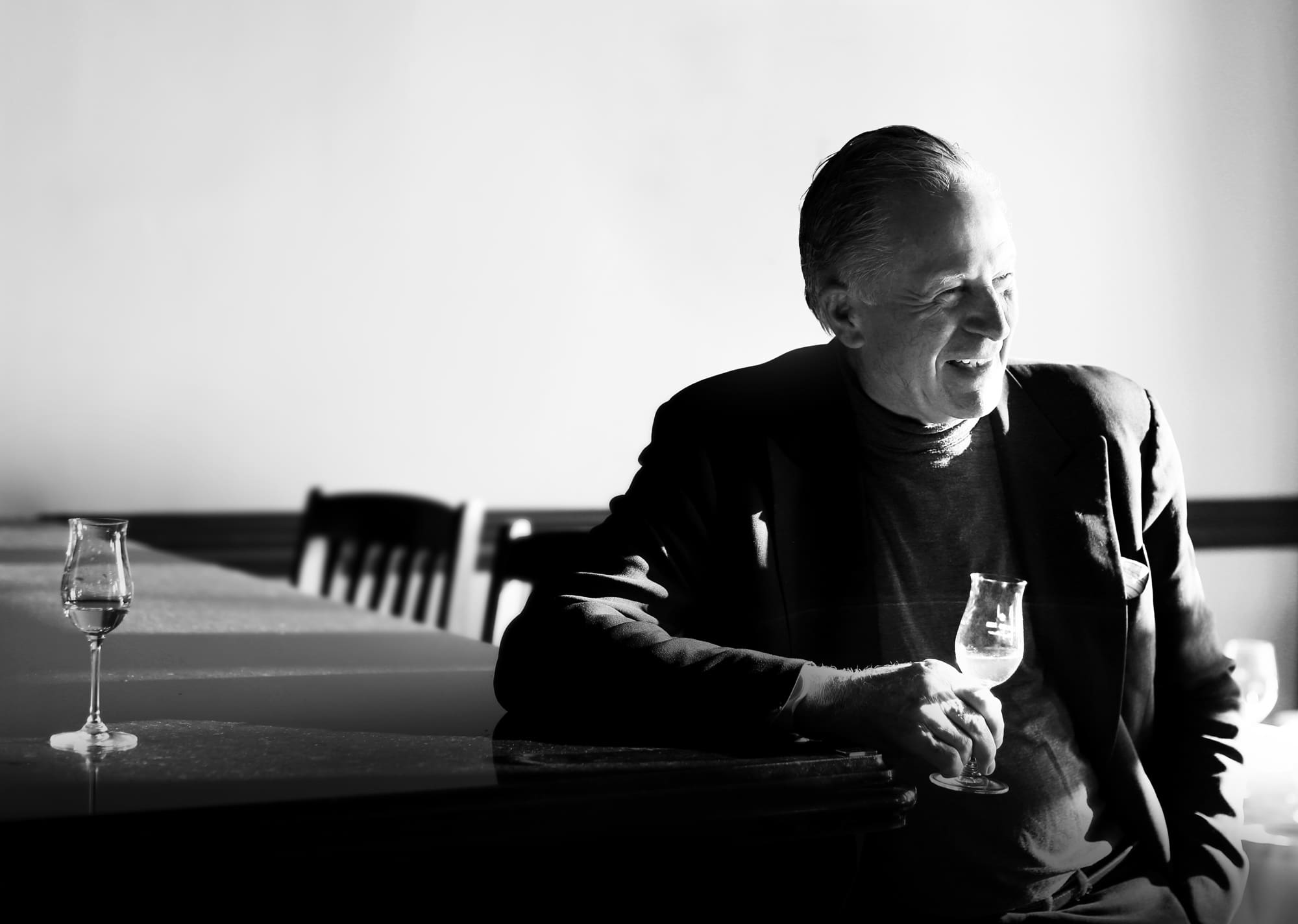Jeremiah Tower first teamed up with Alice Waters to put Chez Panisse on the map then opened one of the best restaurants in the world: Stars in San Francisco. His was the driving vision behind the revolutionary reclaiming of local American food that became known as California cuisine. His tenure at Stars was electrifying and served as the archetype for the chef as celebrity and rock star. A recent Anthony Bourdain film, Jeremiah Tower: The Last Magnificent, chronicles the 75-year-old’s career in the kitchen, his extended retreat in Mexico and his recent re-emergence onto a stage that he helped build.
He journeyed to the Twin Cities in January to cook with an old friend, Gianni’s Steakhouse Executive Chef Steve Vranian, who worked at Stars for 15 years. As Tower and I talked at a window table in angled winter light, there was very little rock star on display. In its place were pitch-perfect sartorial elegance, bawdy humor, an inquiring intelligence and a still-unjaded openness to the simple wonders of sensual food experiences.
Do you have a formative early food experience, something that changed your relationship with food?
The moment that was eureka for me was when I was probably 6 or 7. We were in Queensland, Australia, visiting a pineapple plantation, and one of the guys took a pineapple and cut off the top. I expected to have to cut it, peel it, core it, all that sort of thing — what I’d seen my mother do. And he said, “No, use your fingers.” And I just dug into the well of the pineapple with my fingers and ate. I’ve never forgotten that. That pineapple was the benchmark for every piece of pineapple for the rest of my life. I was inoculated for life with the taste of true pineapple.
How do you feel about the era of food shows and celebrity chefs that, in some sense, you had a role in inspiring?
I was sitting with Tony Bourdain during the promotional tour for the film, and someone came up and asked how to get a food show. Tony turned to him and said, “Don’t!”
What do you think he meant?
I think he meant — at least this is how I feel — that there is a lot of money and clout in hosting a show on Food Network, but it is also a place where an authentic connection to food can die. It’s a culmination but also a graveyard.
 What do you love about food right now?
What do you love about food right now?
That there are places like, for instance, Capri, Italy, or the Amalfi Coast where uniqueness still exists. Where you can get Sorrento lemons. You’d think someone would have stolen seeds or something, but I’ve never seen them anywhere else. You run your fingernail across the skin and smell and you get the lemon moment, the benchmark.
What do you hate about food right now?
Dots. Dots of sauce. Dot. Dot. Dot. What am I supposed to do with them? Dip my finger in them? Do I move around the plate clockwise? Does one dot go with one part of the dish and another with another?
How about a last meal? You know you’re going to die tomorrow — what do you eat tonight?
There are so many last meals, but let me tell you, I was at a benefit dinner in Dallas years ago, and sitting in an empty side room was a one-kilo can of Petrossian beluga caviar — I mean the real beluga. I silently rounded up three friends, and we sat down, with spoons and some toast, and ate the entire kilo. I want to do that again.




